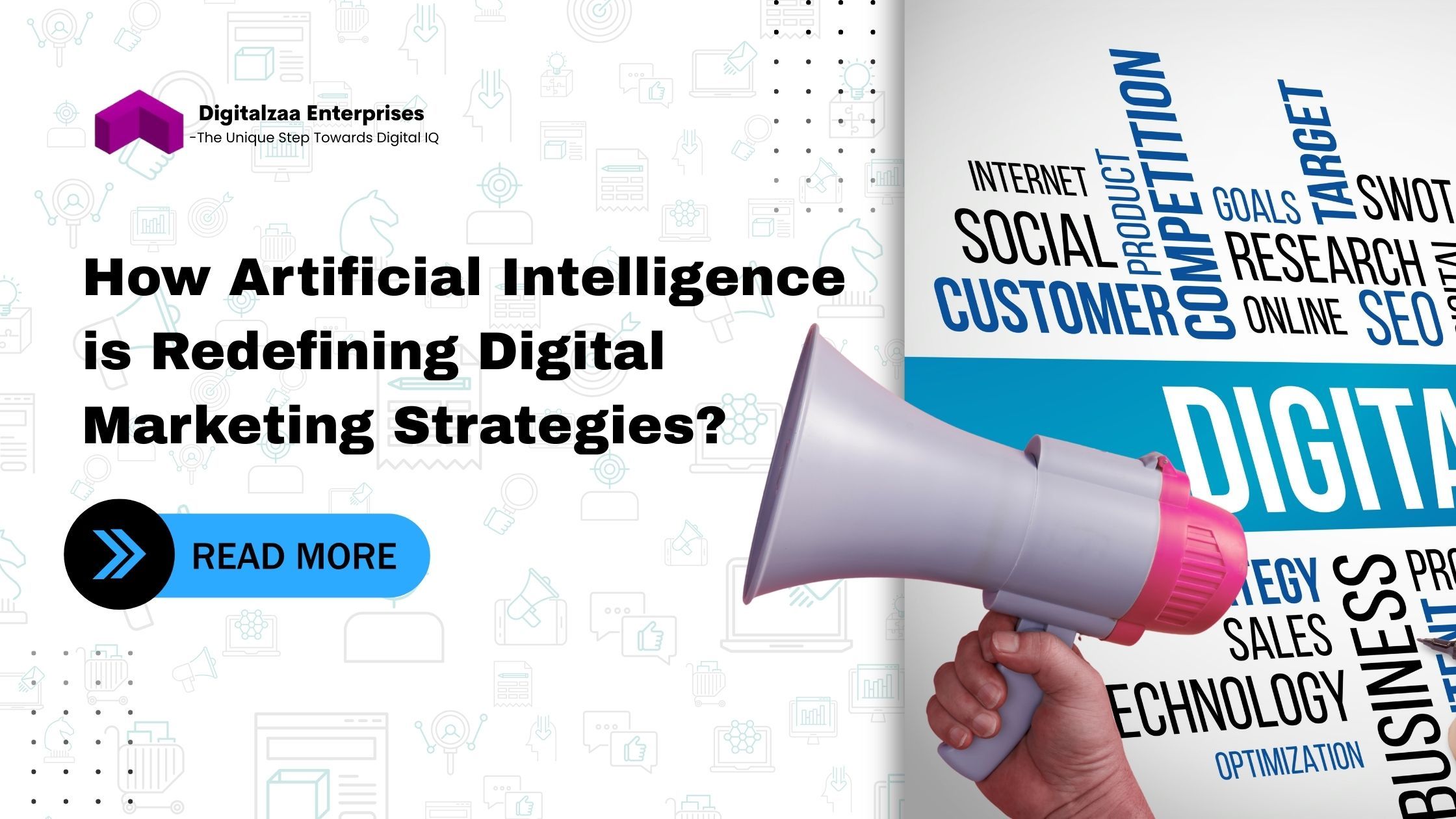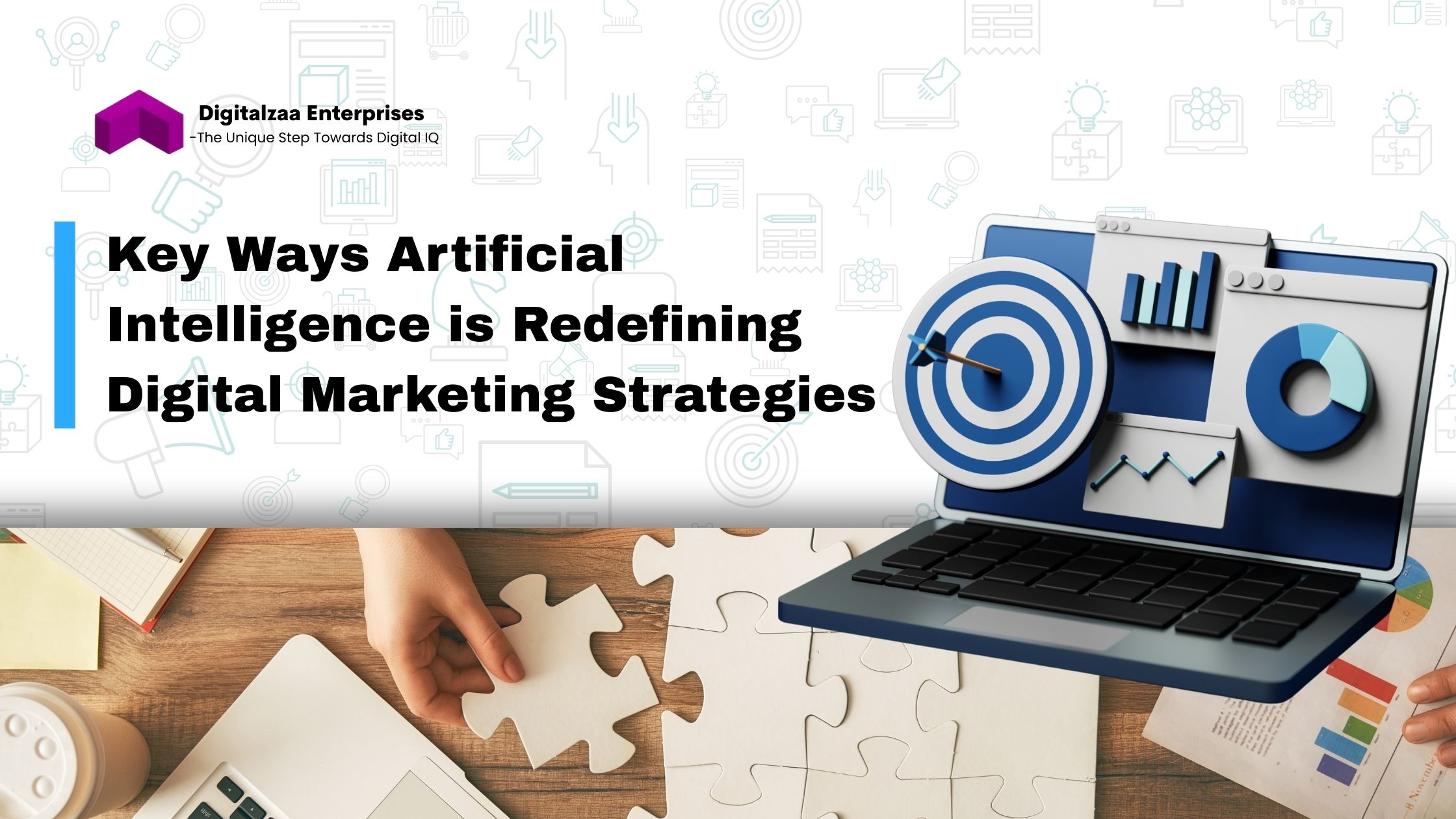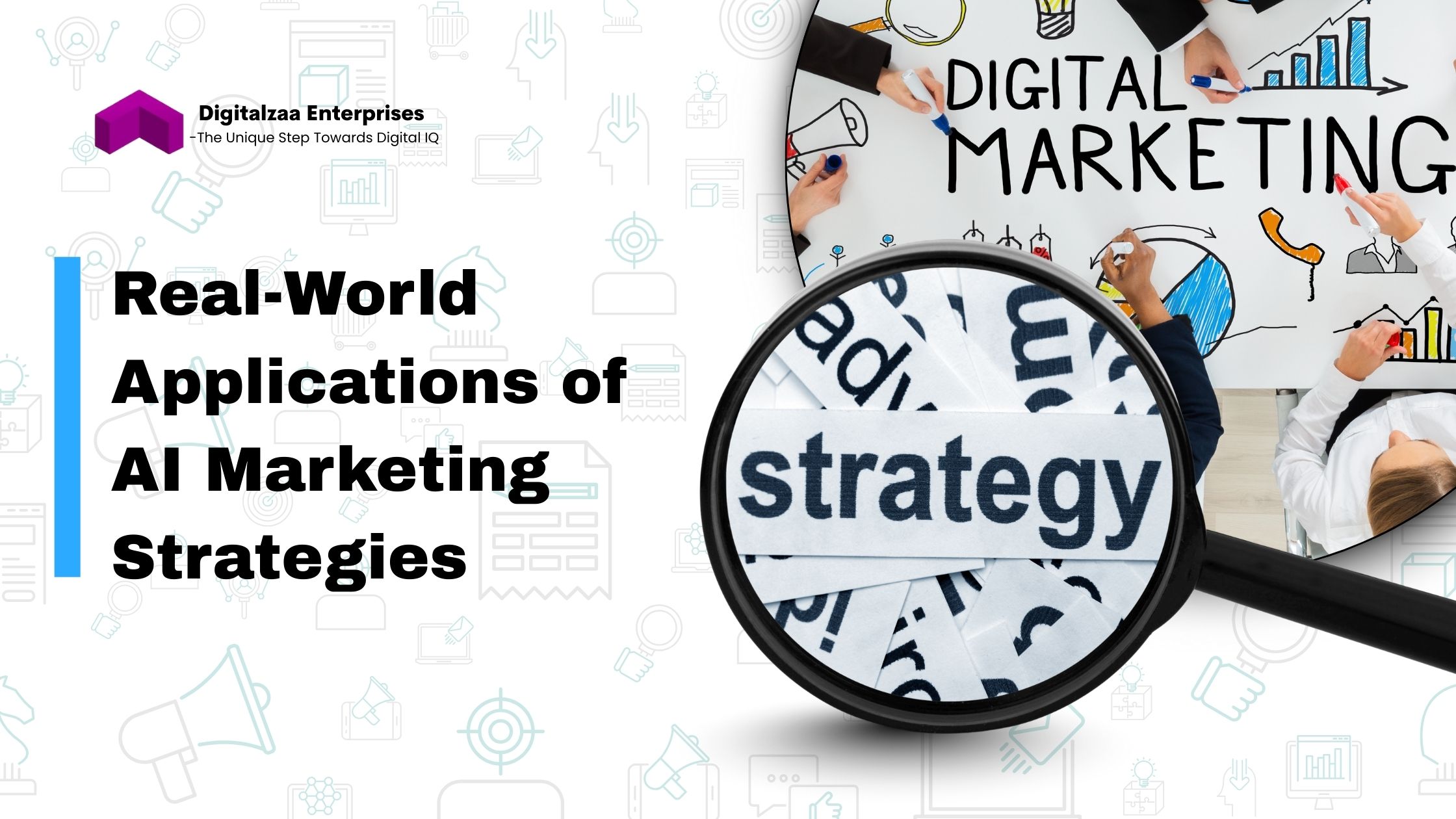How Artificial Intelligence is Redefining Digital Marketing Strategies?

In today’s fast-paced digital landscape, brands face an ever-evolving challenge: how to connect with the right audience at the right time with the right message. Traditional digital marketing methods, though effective in the past, are no longer sufficient in a world where customers demand personalization, speed, and relevance. This is where Artificial Intelligence in Digital Marketing is becoming a game-changer.
By leveraging AI marketing strategies, businesses are not only streamlining processes but also making smarter decisions based on real-time data. From personalized customer experiences to predictive analytics in marketing, artificial intelligence is revolutionizing the way organizations attract, engage, and retain customers.
In this blog, we’ll explore how AI is redefining digital marketing strategies, key benefits, applications, and future trends that marketers should not ignore.
Why Artificial Intelligence Matters in Digital Marketing
Artificial Intelligence is no longer just a futuristic concept—it is an essential tool driving digital transformation across industries. In marketing, AI enables companies to:
- Analyze massive datasets in seconds.
- Predict customer behavior with high accuracy.
- Deliver hyper-personalized content and offers.
- Automate repetitive marketing tasks.
- Optimize advertising spend for maximum ROI.
The adoption of Artificial Intelligence in Digital Marketing allows brands to move away from guesswork and embrace data-driven decisions. This ensures marketing campaigns are not only more effective but also more cost-efficient.
Key Ways Artificial Intelligence is Redefining Digital Marketing Strategies

Let’s look at the most impactful ways AI is shaping modern marketing.
1. Hyper-Personalization for Customer Engagement
One of the biggest shifts AI brings is personalized customer experiences. Consumers today expect brands to understand their needs and deliver tailored content at every touchpoint. AI makes this possible by analyzing browsing history, past purchases, social media activity, and demographic data.
- Email Marketing: AI tools customize subject lines, send times, and content based on user preferences.
- E-commerce: Platforms like Amazon and Shopify use AI-driven recommendation engines to display products customers are most likely to purchase.
- Content Delivery: AI analyzes user behavior to suggest blog posts, videos, or ads that align with their interests.
With personalization powered by AI, businesses build stronger connections and increase customer loyalty.
2. Predictive Analytics for Smarter Campaigns
Another major application is predictive analytics in marketing, where AI uses historical data and machine learning models to forecast future customer actions.
For example:
- A fashion retailer can predict seasonal buying trends.
- A SaaS company can identify which leads are most likely to convert.
- A travel brand can anticipate customer preferences based on past bookings.
By predicting what customers want before they express it, brands can stay ahead of competitors. Predictive analytics also helps optimize ad spending by targeting only the most promising leads.
3. Chatbots and Virtual Assistants
AI-powered chatbots have become indispensable in customer service and engagement. Unlike traditional support systems, AI chatbots can:
- Provide 24/7 assistance.
- Handle multiple queries simultaneously.
- Learn from past interactions to improve future responses.
Brands like Sephora, H&M, and Starbucks use chatbots to enhance customer engagement, from booking appointments to personalized product suggestions. This not only improves user satisfaction but also frees up human agents to handle more complex issues.
4. AI in Content Creation and Curation
Marketers often face the challenge of producing high-quality content consistently. AI tools like Jasper, Copy.ai, and ChatGPT are now assisting in creating blogs, ad copy, social media posts, and even video scripts.
- Content Generation: AI drafts initial versions of blogs, which marketers refine to align with brand tone.
- Content Curation: AI suggests trending topics or relevant articles to keep audiences engaged.
- SEO Optimization: AI tools analyze keywords, readability, and competitor content to improve search rankings.
This integration ensures content strategies are not only creative but also data-driven.
5. Smarter Advertising and Media Buying
In the past, advertising relied heavily on human judgment and manual targeting. Now, AI marketing strategies have transformed media buying into a highly automated and precise process.
AI algorithms analyze user behavior and serve ads at the best possible time to maximize clicks and conversions. Programmatic advertising platforms use AI to:
- Identify the most effective channels.
- Allocate budgets dynamically.
- Adjust campaigns in real time for better ROI.
This allows businesses to optimize ad spend while reaching the right audience at scale.
6. Voice Search and Smart Assistants
With the rise of smart devices like Alexa, Google Assistant, and Siri, voice search is changing SEO strategies. AI plays a critical role in processing natural language and delivering accurate results.
Marketers are now optimizing content for voice search by focusing on conversational keywords and FAQs. Since many voice searches are local (“near me”), AI also helps businesses improve local SEO performance.
7. Sentiment Analysis for Brand Reputation
Understanding customer emotions has always been a challenge for marketers. AI-driven sentiment analysis now helps brands monitor online conversations, reviews, and social media comments.
By identifying positive, negative, or neutral sentiments, businesses can:
- Respond to complaints proactively.
- Measure the impact of marketing campaigns.
- Adapt strategies to improve customer perception.
This ensures stronger brand reputation management and deeper customer trust.
Benefits of Using Artificial Intelligence in Digital Marketing
The integration of AI into digital marketing strategies provides several advantages:
- Efficiency: Automates time-consuming tasks like reporting, email scheduling, and campaign monitoring.
- Accuracy: Reduces human error in data analysis and targeting.
- Cost Savings: Optimizes ad spend and improves ROI.
- Personalization: Delivers relevant experiences to each customer segment.
- Scalability: Handles large datasets and campaigns effortlessly, allowing brands to grow without proportional increases in resources.
Real-World Applications of AI Marketing Strategies

Let’s explore how leading brands are already using AI effectively:
- Netflix: Uses AI to recommend shows and movies based on viewer behavior.
- Spotify: Personalizes playlists like "Discover Weekly" using AI-driven algorithms.
- Coca-Cola: Employs AI for targeted social media campaigns and audience insights.
- Nike: Uses AI chatbots and recommendation engines to enhance e-commerce experiences.
These examples highlight how Artificial Intelligence in Digital Marketing helps brands drive higher engagement and conversion rates.
Challenges of Implementing AI in Marketing
While the benefits are undeniable, businesses must also address challenges when adopting AI:
- Data Privacy Concerns: Collecting and analyzing customer data must comply with regulations like GDPR.
- High Implementation Costs: AI tools can be expensive for small businesses.
- Skill Gap: Teams need training to effectively use AI technologies.
- Over-Reliance on Automation: Excessive dependence on AI may reduce human creativity and empathy.
Marketers should balance AI-driven insights with human judgment for optimal results.
Future of Artificial Intelligence in Digital Marketing
The role of AI in marketing will only grow stronger in the coming years. Future trends include:
- Advanced Predictive Analytics: AI will forecast not only customer behavior but also market trends and competitor moves.
- AI-Driven Video Marketing: Tools will create personalized video ads in real time.
- Integration with Augmented Reality (AR) and Virtual Reality (VR): AI will power immersive experiences for product trials and virtual shopping.
- Emotion AI: Advanced algorithms will detect facial expressions and voice tones to personalize interactions further.
The future promises more sophisticated AI marketing strategies, where human creativity and AI intelligence work hand in hand.
Conclusion
Artificial Intelligence is no longer a luxury—it is a necessity for businesses aiming to stay competitive in the digital age. From personalized customer experiences to predictive analytics in marketing, AI has redefined how companies design, execute, and measure their digital marketing strategies.
By embracing Artificial Intelligence in Digital Marketing, businesses can unlock unprecedented levels of efficiency, personalization, and ROI. Those who leverage AI marketing strategies today will not only meet customer expectations but also set new standards for the industry.
The future of digital marketing is clear: it’s smart, it’s data-driven, and it’s powered by AI.


